Sustainability - how some Playtime Paris brands embrace responsible production
Here at Playtime Paris there has been an increase in brands exhibiting that focus on sustainability and responsible production, concerned both for the environment and world production. We have selected some exhibitors who are striving to make a difference and have explored with them, their reasons for choosing a more sustainable philosophy.
My little cozmo was founded by Núria Iracheta in Barcelona, Spain in 2014. She has launched her first baby clothing collection to fit modern lifestyles with minimalist patterns, unique prints and a fashion-forward eye for detail. The clothing line for newborn babies up the age of two years old, is entirely produced in Barcelona focused on organic cotton.
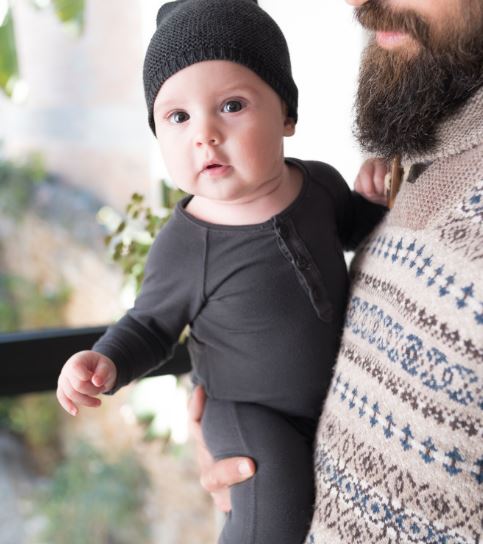
Photo credit: My Little Cozmo
We asked Cristina Iracheta, Sales Manager why My Little Cozmo chose to use organic cotton:
"Well, our brand was conceived under ethical principles which we are resolved not to abandon. We would like to work on the preservation of the environment as much as possible. Deep down, everybody should be clear about all the benefits for our health, skin, environment… this way of thinking has on the short/medium/long term".
As the collection is produced entirely in Barcelona, it’s very much a local product with local producers so there is no heavy freight or shipping, thereby reducing their carbon footprint. The product is made simply without expensive finishing. As a company they want to go further than just recycling, they are committed to buying organic cotton from local producers and intend to launch further collections.
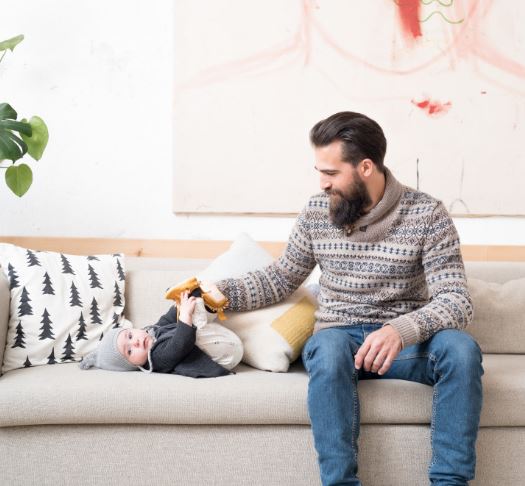
Photo credit: My Little Cozmo
Sustainable fashion is not just restricted to baby clothing, there are a number of established brands who have promoted green materials and environmentally friendly manufacturing processes for years including the Swedish nursing brand Boob.
Back in 1999, Mia Seipel watched her sister breastfeed her newborn son on a windy day outdoors in the park. She decided to design a nursing top for her and came up with a now patented nursing collection, produced in Europe, which has become a favourite brand amongst nursing mums throughout the world. From the very beginning Mia set out to produce her garments with care by choosing green materials. She fundamentally believes that "we all have the power to make choices that work either for or against a future. At Boob, we make clothes for the future".
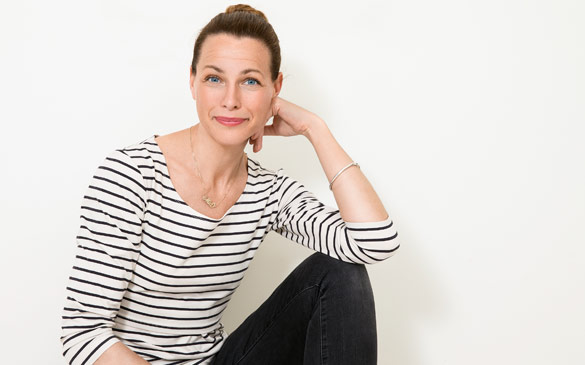
Image: Mia Sepeil founder of Boob Design
Mia commented "In 2008 we took an active decision to start exchanging all non-sustainable materials to sustainable options. As a brand that works with mothers as our main target group we feel it is natural and important that we make our clothes with care for the future and the next generation".
Since 2008, Boob have increased their use of sustainable materials from 20% to over 83% focusing on organic cotton, lyocell and recycled polyester and polyamide. Boob choose to use Lyocell as it’s made from fast-growing eucalyptus grown in sustainable managed forests. The production process only requires 5% of the water used in traditional cotton farming. The fibre is also produced in a closed loop process, which means that almost all water and all the chemicals are reused.
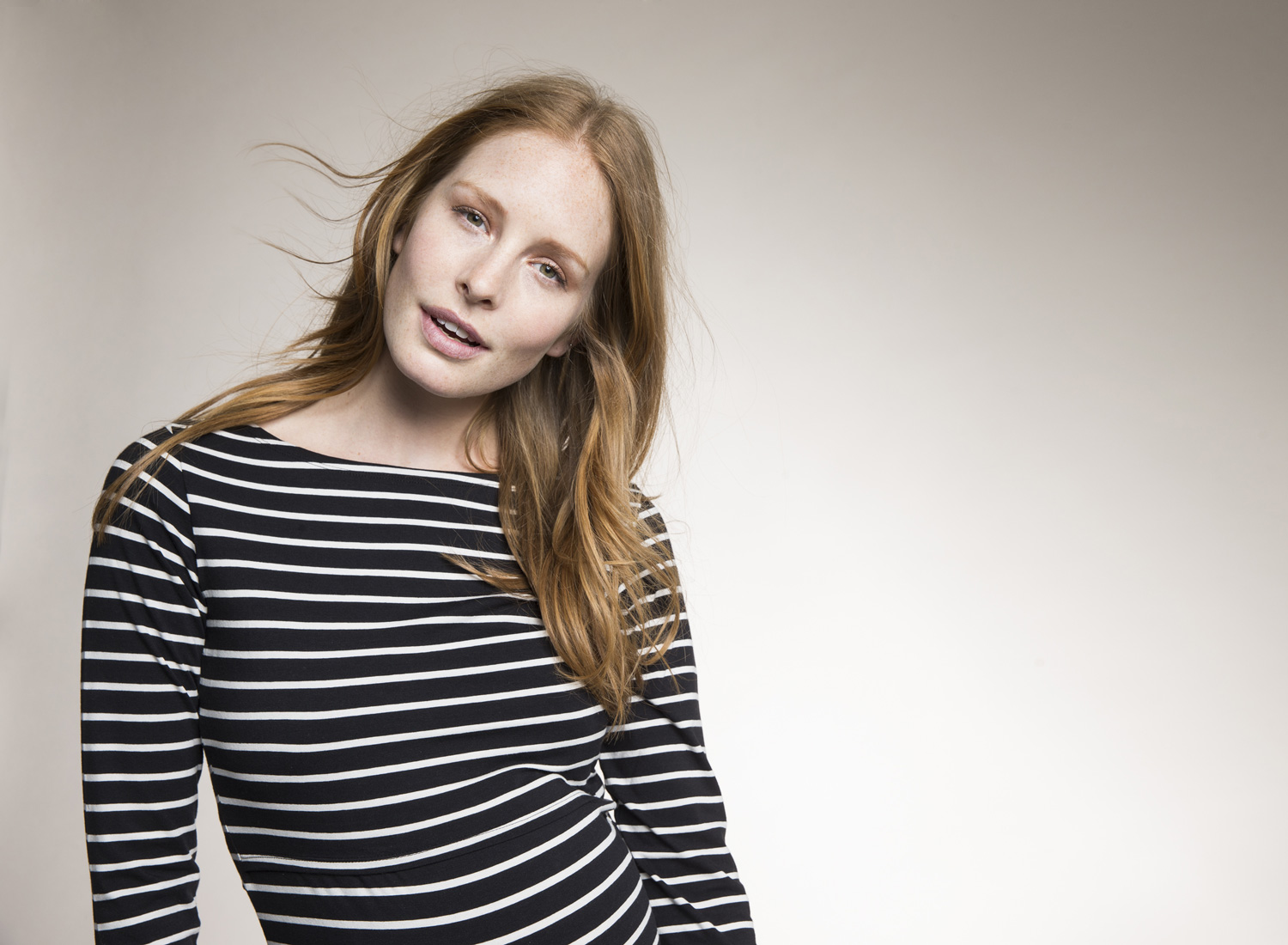
Photo credit: Boob Design
All fleece used in Boob’s collection is made from recycled plastic bottle and they also use polyamide for their underwear and swimwear which is made from recycled waste. By making new materials from waste, Boob are actively saving on the earth’s resources of crude oil.
Not only are Boob committed to green materials, they actively promote sustainability throughout the company:
"Sustainability, for us at Boob, is important and a priority in all our actions and plans. As our production is where we have our biggest impact on the environment, this is where we start. We also involve it in our everyday business at Boob HQ by, for example: recycling our waste rubbish, choosing partners like cleaning and courier companies that have a high CSR-standard and by always try to make the most sustainable choice in our purchases of machinery, stationery, food etc."
We asked Mia how important sustainability is to their customers:
"We know it is. We recently made a survey among our customers. 1400 Swedish moms responded and 91% replied that it was important that the clothes they buy are made of sustainable materials. Even if you have no interest prior to becoming a parent, I think an interest in the future comes naturally when you become a parent as it is so clear that your children will have to live with the decisions you take".
They also look to reduce the environmental impact that garments have. They believe that we all have a responsiblity to wash and dry their clothing in the most environmentally friendly way and that we should all recycle instead of discarding their unwanted clothing. Committed to this principle, each Boob garment includes a care label which promotes recycling and reminds consumers that the garment could and should be passed on:
"I AM YOURS TO LOVE, WASH AND WEAR. WHEN YOU ARE DONE WITH ME, PLEASE HAND ME OVER TO SOMEONE WHO NEEDS ME".
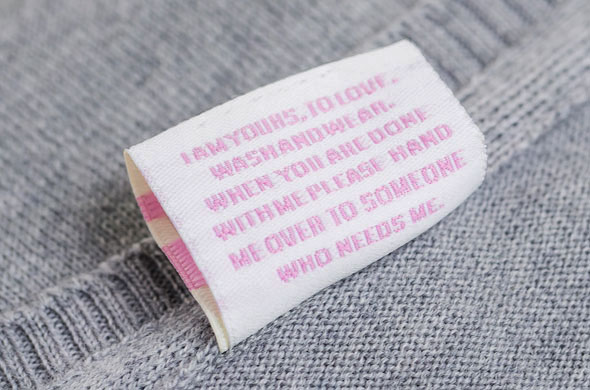
Photo Credit: Boob Design. Image of Boob care label
Their key message is that clothing should be kept in the loop, in its’ natural form. By using high quality fabrics and materials, they can ensure that their garments can be washed over and over again and that when they are no longer needed they should be passed on or given to charity and furthermore, Boob pledge that if this isn’t possible, they are encouraged to send back to Boob HQ and they will recycle themselves and they are thinking of how they can be part of a more re-usable and recycling phase.
UBANG, a baby and childrenswear clothing brand, based in Denmark have a similar philosophy to Boob. Owner/designer Ulla Bang Jørgensen believes we all have a responsibility to contribute to a greener world using natural choices where we can. She focuses on suppliers that are certified for organic production but also supports a change in the countries that other brands choose for production "The price is a little higher, but it also ensures good working conditions, new production facilities and better farming".
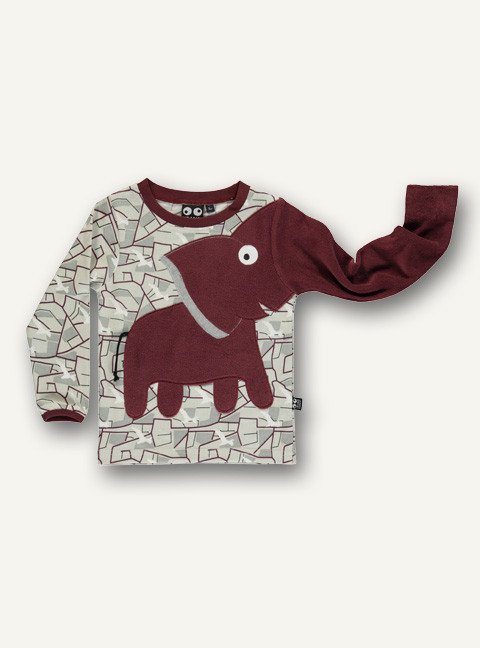
Photo credit UBANG
Ulla recently visited her supplier in South India and was delighted to discover that the polyester they use in their mixed materials is 100% recycled from plastic bottles. "Polyester is not really my material, I like the cotton quality but sometimes it is good to mix in if you want a fleece material – and now I will feel so much better knowing it is recycled".
UBANG have introduced a quilt material which is 100% organic cotton on the outer shell, and 100% recycled polyester inside – they feel it’s a "great material that we can use with a clear conscience".
Ulla is convinced that going green will help her retain her German customers. UBANGs biggest market is the German market, and their German customers demand organic cotton and recycled materials and they are happy to be able to meet these demands. She believes that the maternity and childrenswear industry is way ahead when it comes to sustainability and customer demands are growing rapidly, and she looks forward for organic cotton becoming a natural part of any brand and become the ‘normal’ standard.
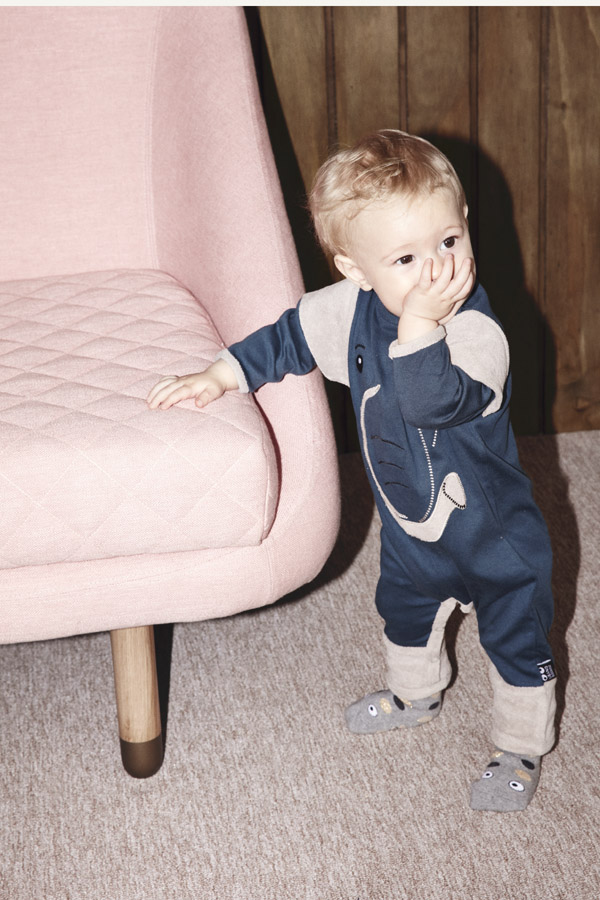
Photo credit: UBANG
Whilst on her trip to India, she visited the building site of a new factory run 100% on green energy and with the newest technologies within sustainability. She says she would be very proud to one day move some of UBANGs production to this facility in order to both support sustainability and help the local community.
Finally we meet Lieblinge, based in Berlin. As footwear designers and orthopedic foot researchers and technicians they have been working and gaining experience in footwear design and production for over 15 years. They believe that most companies do not consider producing with ecological and sustainable materials and processes due to financial reasons. They have been observing and analysing the effects on humanity and the planet long enough to say that something has to change. They launched Lieblinge in 2013 with the objective to design and produce ecological footwear for all ages under the highest standards in ecology and design, bringing together both design and sustainability.
Lieblinge think that the word ‘sustainability’ has become a misused term, often adopted by companies that don’t actually practice it. At Lieblinge they take sustainability seriously. When they launch a new product they choose materials, production methods, packaging solutions and even electricity consumption and delivery solutions to leave the least footprint on their eco system. If available, they chose only materials that contain no harmful substances, are highly eco-certified and can easily be recycled or composted.
As parents of two children and foot-anatomy specialists, Lieblinge have designed and patented ecological soft leather shoes, which not only features the most natural barefoot walking experience, but also gives babies and toddlers the longest wearing time and the most durable shoe. With the extended product lifetime, Lieblinge is truly sustainable and adds value for the consumer.
While developing their first concept for a non-slip, flexible rubber sole, they found none of the available soles and materials on the market could meet their requirements in softness and ecology so together with their industrial footwear design partner they developed an EcoRubber material, fulfilling the highest ecological requirements in synthetic rubbers and resulting in a natural walking experience.
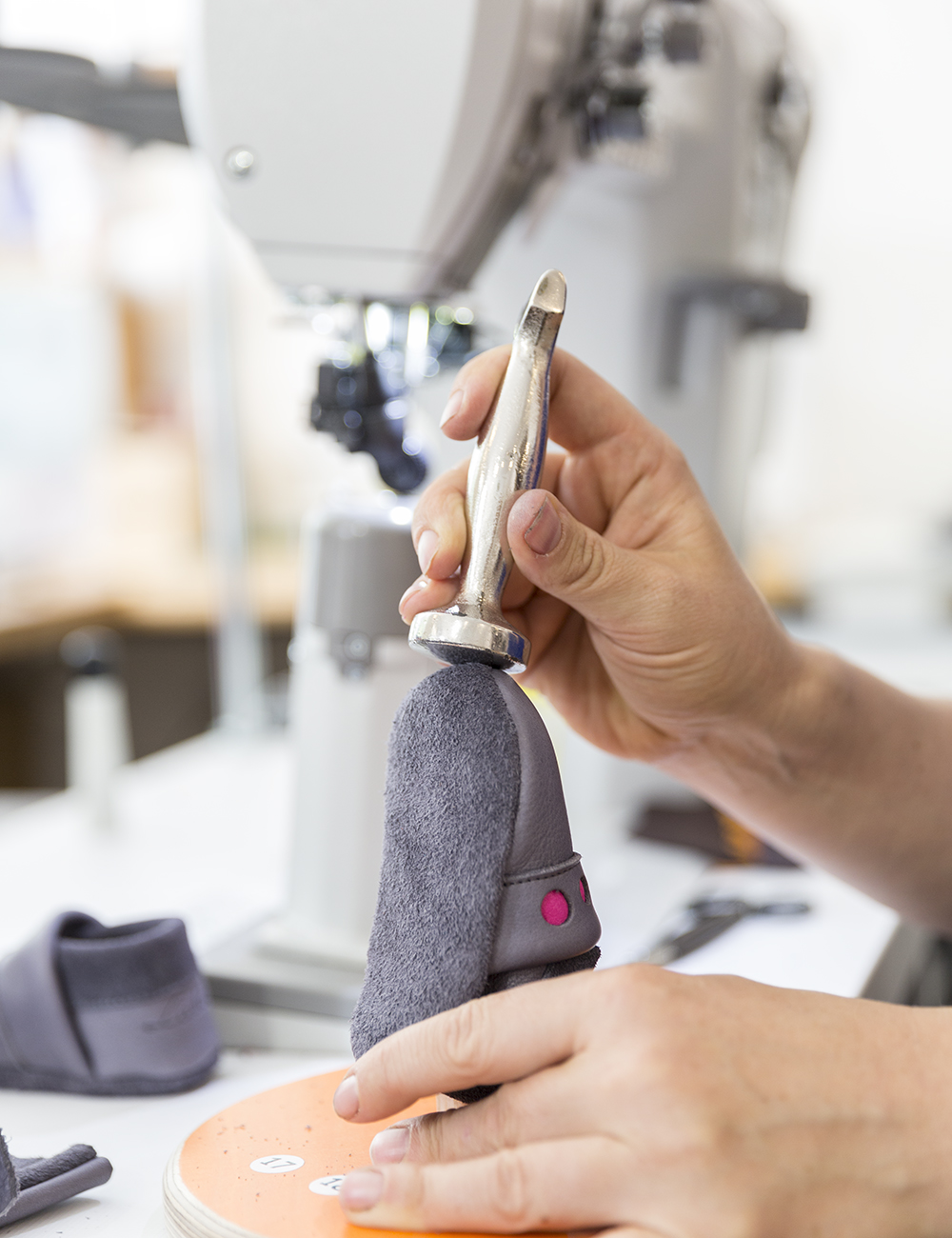
Lieblinge follows an uncompromised ecological and sustainable philosophy. To maintain the highest quality standards they have developed a Royal leather balm for certified ecological leathers, which can be used especially for outdoor styles to make them more water resistant.
We asked Lieblinge if sustainability makes a difference to their consumers:
"Not only does it make a great difference, it continuously becomes one of the most important USPs when it comes to children’s footwear and leather goods in general. As well as wholesale and online customers, we get direct feedback from customers that come to buy directly in our flagship store in the centre of Berlin. In general we note a steadily growing interest and care for products that are produced ecologically and contaminant free".
Lieblinge launched 3 years ago with a plain indoor slipper for babies and toddlers. Their product range is growing every season and they are looking ahead to expanding their portfolio with more sophisticated designs and functions. In the next 3 years they want to grow into designing and producing adult street shoes to the same level of quality and the highest standards in ecology, sustainability and design, all made in Germany.
Boob Design
Mia Sepeil, founder of Boob Design
—
09














